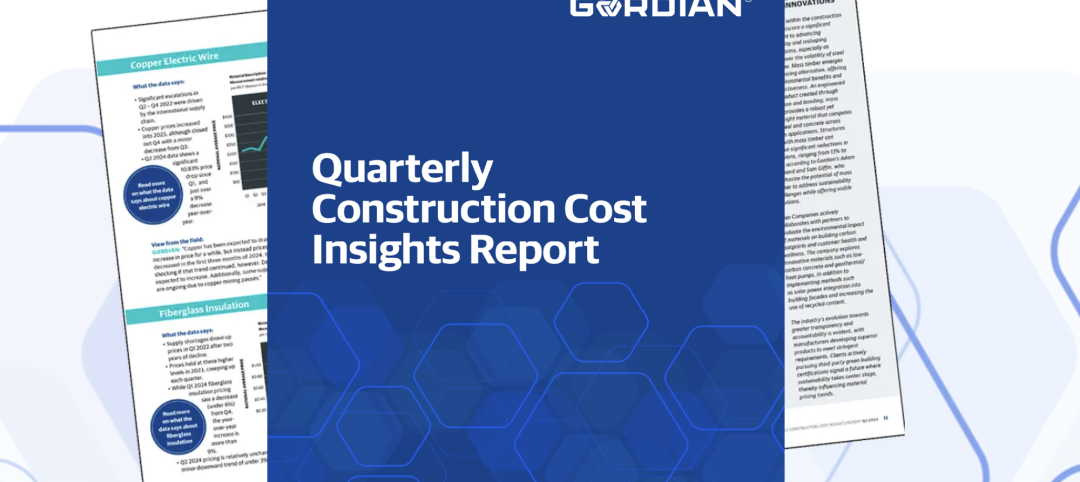A record 10.7 billion rides were taken on public transit in the United States last year. And a national survey of Americans finds that the speed, reliability, and cost, more than any other factors, determine people’s willingness and frequency of use.
The survey of 11,842 adults in 46 Metropolitan Statistical Areas, 60% of whom live in “transit progressive” cities, also found that far more Americans want to live in mixed-use, walkable communities than actually do.
“That’s significant news, not just for planners, but for the real estate industry as well,” wrote David Bragdon, executive director of TransitCenter, a New York-based public policy and advocacy organization, which conducted the poll.
Bragdon asserted that, unlike other public utilities, mass transit is “personal,” and that receptivity to using mass transit is highly dependent on riders’ relationships with it in such areas as efficiency, cleanliness, proximity to stations, and how quickly they get to their destinations.
TransitCenter concluded that transit use is, ultimately, attitudinal. But this inference is a little quirky. Baby boomers who grew up in an era of mass-transit expansion are now far more resistant to using these systems than Millennials who “embrace” mass transit, said the survey.

Graphs courtesy TransitCenter
If you’re an ethnic minority, you are more likely to be a transit rider. Nearly two-fifths of African-Americans polled use mass transit at least once a week, and 22% use it three or four times a week. More than 30% of Hispanics ride buses and trains once a week, and one-fifth use these modes three or four times weekly. In contrast, only 10% of whites ride mass transit weekly, and only 5% use these modes more frequently.
The survey also found correlations between usage and income: high-income Americans are not big riders.
Some perceptions about transit use get debunked: for example, just because you’re a parent doesn’t mean you use transit systems less, although the survey found that parents aged 30 or younger are more positively inclined towards mass transit than older parents.
Students are frequent riders, but higher education is not much of a determining factor about who uses transit systems. That being said, a neighborhood’s employment rate certainly has a positive impact on rider frequency, and the survey found that employees are using transit benefits when their employers offer them.
The top predictor of use, according to the survey, is what kind of neighborhood the person lives in. While most respondents don’t seem to be clamoring to move back into their cities’ core, “many Americans are looking for something different” from their current living environments, Bragdon said. TransitCenter, in fact, sees “widespread demand” for walkable communities, even though most of the respondents aren’t living in these currently.
Related Stories
Office Buildings | Jun 3, 2024
Insights for working well in a hybrid world
GBBN Principal and Interior Designer Beth Latto, NCIDQ, LEED AP, ID+C, WELL AP, share a few takeaways, insights, and lessons learned from a recent Post Occupancy Evaluation of the firm's Cincinnati, Ohio, office.
Multifamily Housing | Jun 3, 2024
Grassroots groups becoming a force in housing advocacy
A growing movement of grassroots organizing to support new housing construction is having an impact in city halls across the country. Fed up with high housing costs and the commonly hostile reception to new housing proposals, advocacy groups have sprung up in many communities to attend public meetings to speak in support of developments.
MFPRO+ News | Jun 3, 2024
New York’s office to residential conversion program draws interest from 64 owners
New York City’s Office Conversion Accelerator Program has been contacted by the owners of 64 commercial buildings interested in converting their properties to residential use.
MFPRO+ News | Jun 3, 2024
Seattle mayor wants to scale back energy code to spur more housing construction
Seattle’s mayor recently proposed that the city scale back a scheduled revamping of its building energy code to help boost housing production. The proposal would halt an update to the city’s multifamily and commercial building energy code that is scheduled to take effect later this year.
Mass Timber | May 31, 2024
Mass timber a big part of Western Washington University’s net-zero ambitions
Western Washington University, in Bellingham, Wash., 90 miles from Seattle, is in the process of expanding its ABET-accredited programs for electrical engineering, computer engineering and science, and energy science. As part of that process, the university is building Kaiser Borsari Hall, the 54,000-sf new home for those academic disciplines that will include teaching labs, research labs, classrooms, collaborative spaces, and administrative offices.
Construction Costs | May 31, 2024
Despite challenges, 2024 construction material prices continue to stabilize
Gordian’s Q2 2024 Quarterly Construction Cost Insights Report indicates that supply chain issues notwithstanding, many commodities are exhibiting price normalization.
University Buildings | May 30, 2024
Washington University School of Medicine opens one of the world’s largest neuroscience research buildings
In St. Louis’ Cortex Innovation District, Washington University School of Medicine recently opened its new Jeffrey T. Fort Neuroscience Research Building. Designed by CannonDesign and Perkins&Will, the 11-story, 609,000-sf facility is one of the largest neuroscience buildings in the world.
Architects | May 30, 2024
AE firm Goodwyn Mills Cawood merges with Southland Engineering
Architecture and engineering firm Goodwyn Mills Cawood (GMC) is further expanding its services through a strategic merger with engineering firm Southland Engineering in Cartersville, Ga.
K-12 Schools | May 30, 2024
Inclusive design strategies to transform learning spaces
Students with disabilities and those experiencing mental health and behavioral conditions represent a group of the most vulnerable students at risk for failing to connect educationally and socially. Educators and school districts are struggling to accommodate all of these nuanced and, at times, overlapping conditions.
MFPRO+ New Projects | May 29, 2024
Two San Francisco multifamily high rises install onsite water recycling systems
Two high-rise apartment buildings in San Francisco have installed onsite water recycling systems that will reuse a total of 3.9 million gallons of wastewater annually. The recycled water will be used for toilet flushing, cooling towers, and landscape irrigation to significantly reduce water usage in both buildings.




















